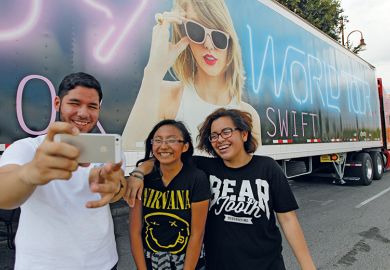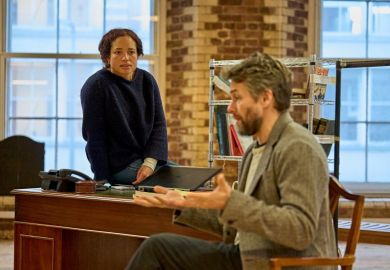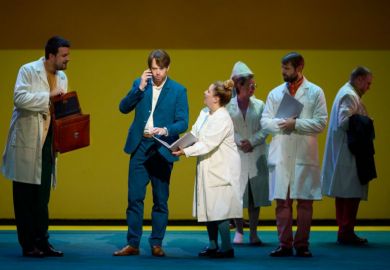That was among the views put forward during a panel discussion on Artists in the Academy that highlighted both the challenges and the benefits of such collaborations.
The event, which took place at the British Academy on 21 October, opened this year’s Inside Out Festival, which showcases the contribution of London’s universities to the capital’s cultural life.
Philip Crang, professor of cultural geography at Royal Holloway, University of London, described a number of projects that brought creative artists into his department out of “a shared interest in developing the geographical imagination”.
Research on the wider theme of “diaspora space” and cultural mobility, for example, had included the work of an artist who incorporated and manipulated South Asian textiles in her work. Yet it was he who also suggested that “we need to be wary of academics colonising the creative arts” as a painless way of delivering “public engagement”.
Choreographer Jasmin Vardimon said she was keen to “encourage more intelligent writing about dance and performance”. Though her work built on extensive research, it was often analysed in purely visual terms, with audiences unwilling to “read the book between the lines”. She had found it very stimulating, therefore, to receive feedback from architects, psychoanalysts and researchers in other disciplines as part of her work at the University of Wolverhampton.
Di Mainstone described her experience as an artist-in-residence at Queen Mary University of London, where she developed the Human Harp project and produced a clip-on instrument that enables a performer to transform a suspension bridge into a giant harp. Although she enjoyed the freedom that came from being “the odd-one-out in the department of electrical engineering”, she also noted that it had changed her artistic process, since she now feels that she has to “produce results and think more like a researcher”.
Dominic Johnson, senior lecturer in drama at Queen Mary, said it was natural that artists looked to the academy as other sources of funding seemed to be drying up. Yet he worried that this could lead to universities adopting a very instrumentalised and entrepreneurial approach to the arts that excludes “those who work in more experimental, open-ended ways”.
Register to continue
Why register?
- Registration is free and only takes a moment
- Once registered, you can read 3 articles a month
- Sign up for our newsletter
Subscribe
Or subscribe for unlimited access to:
- Unlimited access to news, views, insights & reviews
- Digital editions
- Digital access to THE’s university and college rankings analysis
Already registered or a current subscriber? Login




